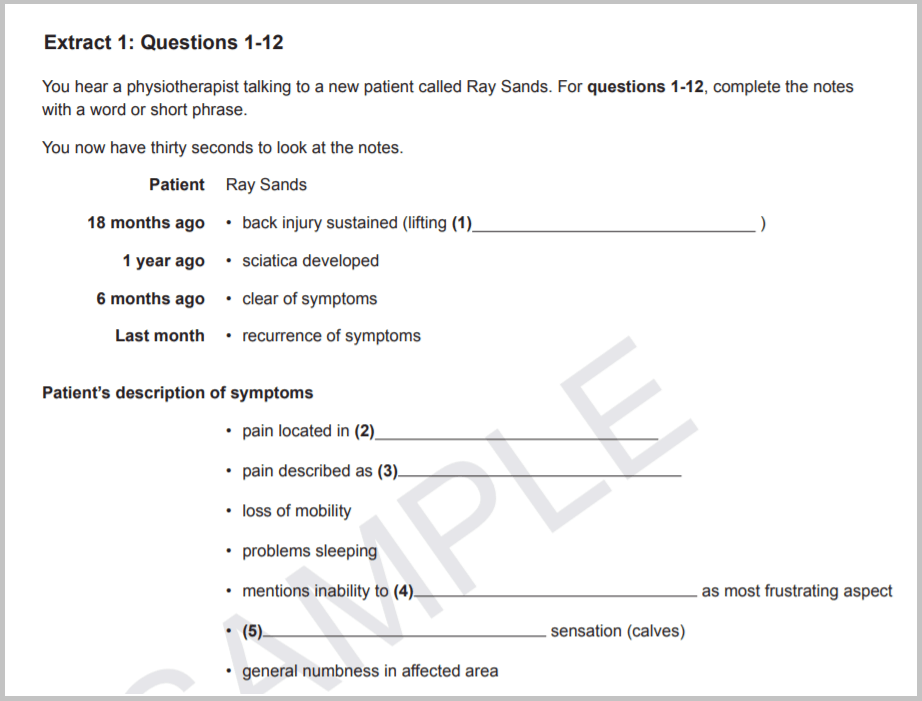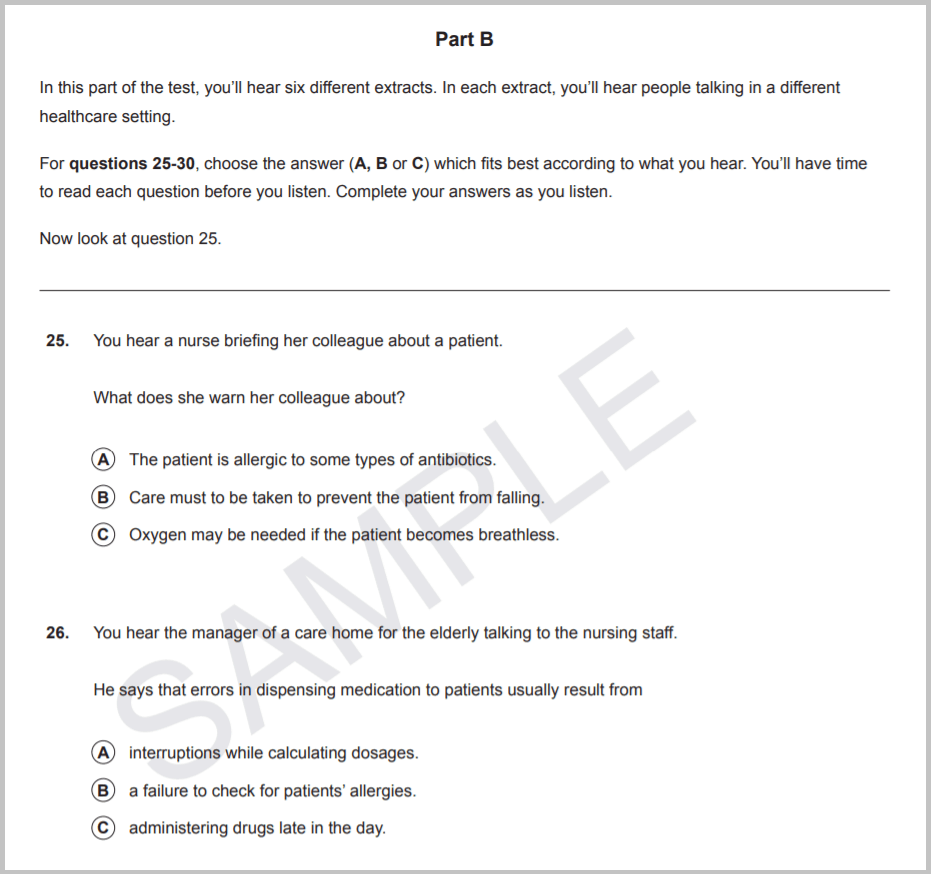During the Listening exam, you will listen to several healthcare-related recordings and will be expected to answer 42 questions. You will have just 40 minutes to complete the test.
But what are the Listening exam tips and strategies and how do you pass the OET Listening test?

The OET listening exam can be difficult because you’ll be expected to:
- Listen to the recording
- Read the questions
- And write your answer
… all at the same time!
Not only does it take practice to develop your multi-tasking skills but it also requires a good understanding of the relevant exam techniques.
So … What are these techniques?
Listening Part A is all about prediction
In Part A of the exam, you will hear a conversation between a healthcare professional and a patient and will be expected to FILL IN THE MISSING WORDS.
At the start oftest you will have around 1 minute to read the questions and we would recommend to use this time to make a GUESS or a PREDICTION as to what the answer MIGHT be.
Look at this example:

You haven’t heard the recording yet… HOWEVER…
You can make a guess as to what the answer might be and this means when you eventually hear the recording, it sounds much more familiar and will help you to answer the questions.
(1) mentions that the patient’s back was lifting something so we can imagine it is going to be something heavy like “weights” or “boxes”.
(2) says that the pain is located in… and then asks for our answer. We can assume this is going to be a part of the body.
(3) discusses how the patient is describing the pain so we should be listening out for a description.
(4) refers to the patient’s inability to do something. We know it is related to his back injury so maybe he is unable to “walk” or “bend over”.
(5) mentions some type of sensation the patient is feeling. Maybe it is a “stinging” or a “tingling” sensation.
Once again, we don’t know the exact answer however by making a prediction we already have a general idea as to how the recording is going to go and this will make hearing and understanding the recording much, much easier!
Listening Part B requires for you to understand keywords
In Part B of the exam, you will hear SIX SHORT WORKPLACE recordings. These will usually involve two colleagues discussing something hospital or clinic.

In this part of the exam, you should focus on deciding on the keywords in the questions and then listening for that information in the question.
[vc_row][vc_column][vc_message message_box_style=”solid-icon” message_box_color=”alert-info”] REMEMBER: Listening exam Parts B and C will use synonym so you may not hear the exact keyword in the recording, they might use another word instead! [/vc_message][/vc_column][/vc_row]
What are the keywords in questions 25 and 26 above?
The keyword for question 25 is: warn
To “warn” means to let somebody know the dangers of something. This means when we hear the recording we are listening to this type of information.
The keywords for question 26 are: “errors dispensing medication”
There may sometimes be more than one keyword, in which case you will need to listen for more information.
Listening Part C requires you to train your attention
In Part C of the exam, you will hear two longer recordings and will need to answer eight questions for each.
Many of the techniques you use in Part B can also be used in Part C.
The challenges in this part of the exam are not losing your focus. The recording can often be long (and in truth a little boring!) and it is easy for your mind to wander.
The best way to improve this is to practice keeping your attention throughout.
We would recommend to:
- Make sure that you have completed at least 4-5 Listening exams before taking your test.
- Practice completing tests under test conditions (and time yourself to make sure!)
- Record your score after hearing the recording one time and then listen a second time to pick up any incorrect answers.
How are you finding the OET Listening exam? You can find further tips on the official OET website.
If you are finding the OET writing exam difficult, you might be interested in our OET Complete Course. This involves online lessons with British OET teachers covering all areas of the OET exam including listening.
We’d love to hear from you. Feel free to ask us any questions in the comments below and our teachers will get back to you.

